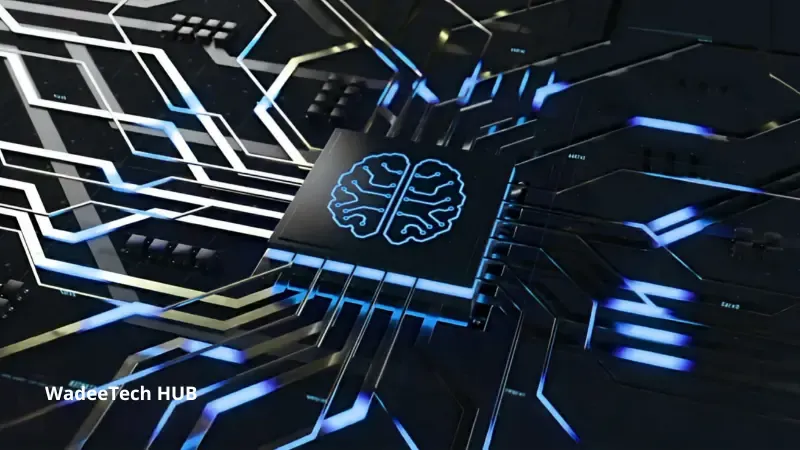Future of Quantum Computing: 6 Revolutionary Developments

The future of quantum computing represents a major paradigm shift in technology, promising to redefine the limits of computation and problem-solving. Unlike classical computers, which process information in binary form (0s and 1s), quantum computers use qubits that can exist in multiple states simultaneously, thanks to quantum phenomena like superposition and entanglement.
This capability allows quantum computers to perform calculations exponentially faster than classical systems for certain complex problems. With companies, universities, and governments investing billions into research and development, the future of quantum computing is moving from theoretical studies toward practical, real-world applications.
Understanding its potential is critical for businesses, scientists, and policymakers looking to leverage the next technological revolution.
The Future of Quantum Computing: Evolution and Breakthroughs in Hardware and Software
The future of quantum computing depends heavily on continuous advancements in both hardware and software. Researchers are developing increasingly powerful quantum processors, exploring new qubit materials, and implementing error-correction techniques to overcome instability.
Hardware breakthroughs are complemented by sophisticated quantum algorithms designed to solve problems that classical computers struggle with, such as optimization, cryptography, and complex simulations.
Key developments include:
- Advanced Quantum Processors: New processors with higher qubit counts and improved coherence times, making large-scale quantum computation feasible.
- Quantum Algorithms: Algorithms designed for AI, data analysis, and cryptographic applications, enabling solutions previously thought impossible.
- Error Correction and Stability: Techniques to minimize noise and maintain reliable computations across scalable quantum systems.
Summary: With ongoing hardware innovations and algorithmic improvements, the future of quantum computing promises to deliver transformative computational capabilities that will redefine technological possibilities.
Quantum AI and the Future of Quantum Computing: Unlocking Smarter Systems
One of the most promising applications of the future of quantum computing is its integration with artificial intelligence (AI). Quantum AI has the potential to accelerate machine learning, optimize large-scale data analysis, and provide solutions to computational problems that are currently infeasible for classical AI systems.
By leveraging quantum principles, AI models can be trained faster, make more accurate predictions, and solve optimization problems with unprecedented efficiency.
Key areas of impact include:
- Enhanced Machine Learning: Quantum processors accelerate model training, enabling real-time learning for large datasets.
- Complex Optimization: Solving scheduling, logistics, and resource allocation problems more efficiently.
- Advanced Data Analysis: Handling high-dimensional data with speed and precision far beyond classical systems.
Summary: The combination of AI and quantum computing will create smarter, more powerful computational systems, shaping the future of quantum computing in industries ranging from healthcare to finance.
Industry Implications and the Future of Quantum Computing: From Research to Real-World Applications
The future of quantum computing is not only a scientific endeavor but also a practical game-changer for multiple industries. From pharmaceutical research to financial modeling, quantum technologies are set to deliver efficiencies, innovations, and solutions that classical computing cannot achieve.
As organizations invest in quantum computing infrastructure, early adopters will gain a competitive edge in technological capability.
Major industry applications:
- Healthcare and Drug Discovery: Quantum simulations accelerate molecular modeling and personalized medicine, reducing the time and cost of drug development.
- Financial Services: Quantum computing improves risk analysis, fraud detection, and investment optimization, offering new strategies for financial decision-making.
- Energy and Material Science: Advanced quantum simulations enable the development of new materials, high-efficiency batteries, and sustainable energy solutions.
Summary: The real-world impact of quantum computing will redefine industries, making the future of quantum computing a crucial focus for innovation-driven organizations.
Challenges in Achieving the Future of Quantum Computing
Despite its promise, the future of quantum computing faces significant hurdles that must be overcome before widespread adoption. Building scalable, reliable quantum systems requires breakthroughs in materials science, error correction, and system stability.
Additionally, the cost and complexity of quantum computers make them inaccessible for many organizations without significant investment.
Primary challenges include:
- Hardware Scalability: Increasing qubit counts while maintaining coherence and minimizing error rates.
- Error Correction: Developing practical methods to reduce computational noise and ensure accurate results.
- Commercial Feasibility: Making quantum solutions affordable and accessible for enterprise use.
Summary: Addressing these challenges is critical for turning the theoretical promise of the future of quantum computing into practical, widespread applications. 
Comparison of Quantum Computing Types: Understanding the Differences
As the future of quantum computing unfolds, several types of quantum computers are being developed, each with unique strengths, limitations, and applications. Understanding these differences is essential for researchers, businesses, and technology enthusiasts looking to navigate this emerging field.
The following comparison highlights the main types of quantum computers and their characteristics:
Quantum Annealing
- Designed primarily for optimization problems and finding the best solutions among many possibilities.
- Limited in the types of calculations it can perform compared to gate-based systems.
- Generally more affordable and easier to implement in current technology frameworks.
Gate-Based Quantum Computing
- Offers the flexibility to execute a wide range of algorithms and complex simulations.
- Requires a large number of qubits and advanced error correction techniques.
- Capable of performing universal quantum computation, making it the most versatile type.
Topological Quantum Computing
- Naturally resistant to errors, offering higher stability for long computations.
- Still largely in research and experimental phases, not widely commercialized yet.
- Promises a scalable and reliable quantum computing future if technical challenges are overcome.
Photonic Quantum Computing
- Uses photons instead of qubits, enabling fast and efficient computations.
- Particularly useful for communication applications and quantum networks.
- Research is ongoing, with significant potential in secure data transmission.
Hybrid Quantum Systems
- Combines classical and quantum computing resources for optimized performance.
- Allows for practical use of quantum computing in specific applications today.
- Helps bridge the gap between current technology and the full potential of universal quantum computers.
Summary: Each type of quantum computer plays a crucial role in shaping the future of quantum computing, offering distinct advantages and applications. By understanding their differences, organizations and researchers can make informed decisions about which technology best suits their needs and goals.
Conclusion: Preparing for the Quantum Revolution
The future of quantum computing is more than a technological evolution—it is a profound shift in how we compute, solve problems, and innovate. From AI integration to industry-wide transformations, quantum computing promises capabilities far beyond classical limits.
As research advances, companies and governments must strategically prepare to harness its potential. The coming decades will witness quantum technologies transforming science, industry, and society, making the understanding and adoption of the future of quantum computing essential for leaders and innovators.
Frequently Asked Questions (FAQ)
-
What is the future of quantum computing and its main advantages?
The future of quantum computing promises to revolutionize industries by offering quantum computing advantages such as solving complex problems faster than classical computers. With developments in quantum processors and scalable quantum systems, businesses can leverage these technologies for improved efficiency, AI applications, and scientific research.
-
How will quantum computing impact cybersecurity and cryptography?
In the future of quantum computing, traditional encryption methods may become vulnerable, making post-quantum cryptography essential. Advanced quantum algorithms and quantum error correction techniques will help secure sensitive data, while integrating quantum computing and cybersecurity strategies ensures safer digital infrastructures.
-
What role will AI play in the future of quantum computing?
Quantum machine learning is set to transform AI by accelerating training and optimization processes. The future of quantum computing will enable quantum computing applications in AI, allowing faster insights from large datasets and supporting innovations in industries like healthcare, finance, and logistics.
-
What are the main challenges in achieving the future of quantum computing?
Despite its potential, the future of quantum computing faces several quantum computing challenges, including hardware instability, maintaining qubit coherence, and the high cost of quantum hardware development. Researchers are actively working on quantum error correction and building scalable quantum systems to overcome these obstacles.
-
How will commercial quantum computing evolve in the future?
The future of quantum computing is moving toward commercial quantum computing, with cloud-based access to powerful quantum systems. Cloud-based quantum computing allows companies to experiment with quantum processors and advanced algorithms without owning expensive hardware, promoting innovation and accelerating quantum research and development across industries.



